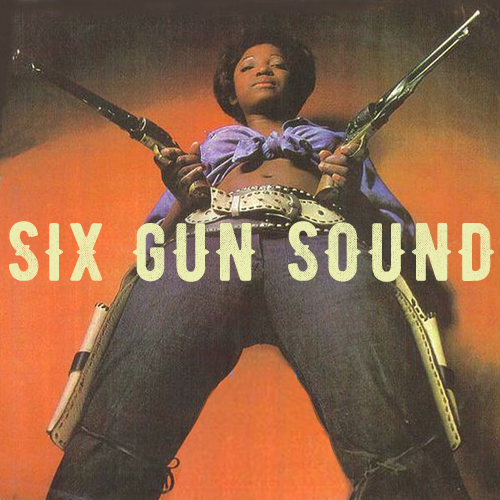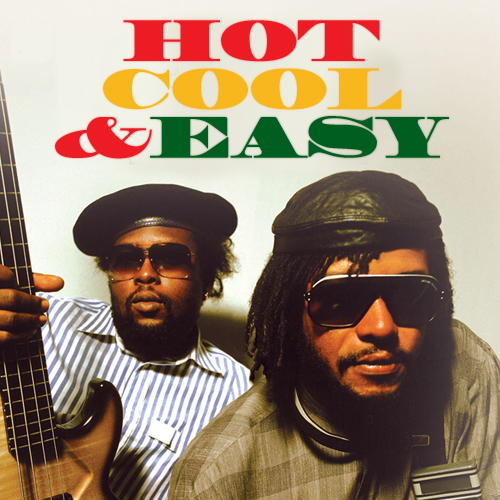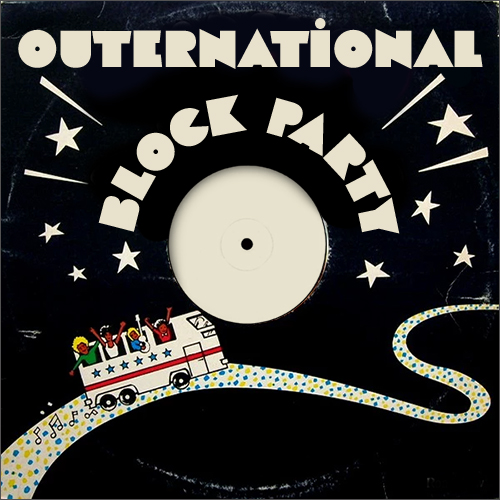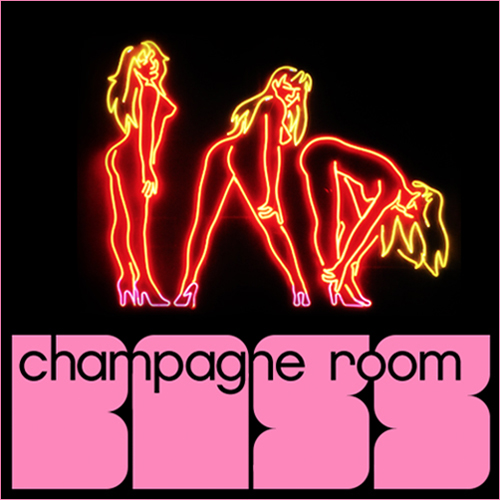SIX GUN SOUND
don evans and the paragons – danger in your eyes
michigan & smiley – eye of danger
black roots players – jamming
sugar minott & john wayne – jamming in the street
stranger cole – these eyes
dub spencer & trance hill – bank robber dub
the clash – bankrobber
yabby you & U-Roy – yabby youth
rsd – conquering lion dub
prince lincoln – true experience
king tubby – tubby at the controls
mad professor – tribal beat dub
dennis alcapone – dub chat
delroy wilson – I’m yours
horace andy – money money
jah stitch – raggamuffin style (rsd remix)
sylford walker – burn babylon
trinity – don’t trouble natty dread
augustus pablo – cinderella in black
errol dunkley – black cinderella
cornell campbell – the gorgon
king tubby – a ruffer version
johnny clarke – don’t double trouble
half normal – brass snake
quantic feat shinehead – spark it
hopeton lewis – cool collie
laurel aitken – it’s too late
winston jarrett & the righteous flames – in a armagideon
alton & zoot – oppression
the jay tees – buck town corner
burning spear – foggy road
barrington levy – look youthman
clint eastwood – side kick
MIX NOTES
It’s been too long since I made a reggae mix. This one is mostly mid-60s to mid-80s, but there’s a couple modern dubs in there, as well as a little bass detour, just to keep it interesting. Wheel and come again!
Whisper To Me – Amazing sound on this record, thanks to Coxsone Dodd. Cecile Campbell, not to be confused with Cecil Campbell aka Prince Buster, was actually Cornell Campbell’s sister. She got her start singing with Rita Marley’s group The Soulettes (alongside Nora Dean). They made a ton of ska and rocksteady recordings with true champions like Lee Perry, Roland Alphonso, and of course Mr Bob Marley himself. She also had a few hits with The Ebony Sisters, like this jumping version of Rescue Me. This came out on 7” in 1969, and was one of just a few solo records she made.
Danger In Your Eyes – Going back to 1966 with Don Evans & The Paragons on a Rocksteady stomper. This spawned the riddim of the same name. I’ve always loved the horns on this. They sound very 50s film noir movie soundtrack or something. Gets those hips moving too.
Eye of Danger – The Jamaican RunDMC, Michigan & Smiley, killing this track on the “Danger In Your Eyes” riddim. This is the last song on their timeless, flawless debut album, “Rub A Dub Style”. This sounds exactly like the Paragons original because Coxsone Dodd would basically take the original Studio One recordings and just overdub them with new live drums (often by Freddie McGregor, no less), to update them a bit and give them a bit more oomph. Makes you wonder if that technique, so prevalent today, originated with Hip Hop or with Reggae? Hmmm
Jamming – This came out on 12” around 1983 on Sugar Minott’s own label, Black Roots. Wackies repressed it about 10 years back, and the dub they tweaked is really something. The Black Roots Players were Sugar Minott’s studio band that included an all star cast of musicians and singers like Ansel Collins, Leroy “Horsemouth” Wallace, and Leroy Sibbles, to name but a few. I am not certain but I would assume it was Winston Holness aka Niney The Observer at the controls that day.
Jamming In The Street – This was recorded at Channel One with the players mentioned above. John Wayne was a regular on Sugar Minott’s own Youth Promotion Sound System, which he started on Crescent Rd in Kingston as a means of discovering new artists and teaching local kids the ins and outs of making it in the music business. This yielded a huge roster of stars that helped define the dancehall sound of the 1980s, like this homage track from another top DJ in their crew, Ranking Joe
These Eyes – 1971 Reggae version of The Guess Who classic, with dub enforcer Byron Smith at the controls. Some internet sage proposed that this cover was perhaps more likely inspired by the Jr Walker and The All Stars version, but who can say? Both are funky as hell. You might recognize the beat from the Reflection Eternal/Mos Def underground classic “Fortified Live”, which looped it either from this, or from U-Roy’s “Tom Drunk”, which uses the exact same instrumental. Stranger Cole started recording for Duke Reid in the early 60s. He’s perhaps best known for his number #1 charting “Bangarang” from 68, which some claim to be the very first reggae song – due mostly to the syncopation of the organ shuffle.
Bankrobber Dub – I owe my love of reggae to two things, the Communist Party and The Clash. When I was a young radical about age 12, an older dude in the book store of the local chapter of the Revolutionary Communist Party gave me my first cassette of Bob Marley and Steel Pulse. At the same time I was already listening to the Clash nonstop, and their employment of reggae vibes, baselines, and (especially dub FX via Mikey Dread) really put the zap on my brain. Fast forward to this month and BOOM, lo and behold, I discover an all-Clash dub tribute album released in 2011 by a Swiss 4-piece band called Dub Spencer & Trance Hill. The whole record is dope, and you can peep it HERE
Bankrobber – If I spin the dub, I need to spin the original vocal by The Clash. Mikey Dread at the controls, of course. I added a few drop outs and FX, and kept it to the last verse only, to keep things moving. This song appeared on the Black Market Clash 10”, which I bought back then and still own that same copy today. This is the record also featured their cover of Willie Williams’ “Armagideon Time”, which was arguably The Clash’s most successful foray into reggae ever.
Yabby Youth – A crucial record in the early days of roots reggae, this is the 1975 version with U-Roy, that Yabby You originally recorded as “Conquering Lion” under the name Vivian Jackson and the Prophets. The 1972 version was such a hit that he got the nickname “Yabby You”, and it pretty much stuck after that. People also called him “Jesus Dread”, because he was a staunch Christian and never took to Rasta – though clearly he gave the toasting godfather U-Roy free reign to chat bout lions and dreads as much as he pleased. King Tubby at the controls on this one.
Conquering Lion Dub – Remixing classic reggae is a treacherous path, but legendary Bristol cats like Rob Smith (Smith & Mighty) aka RSD have reverence for the source material, and it shows. This just puts some extra ragga bounce in there and I ain’t the least bit mad. If you don’t know Smith & Mighty’s remix work, you weren’t paying attention in the late 80s when Trip Hop was starting to take shape.
True Experience – Am I crazy, or do Jamaican record labels have a thing for typos with the word “true”? Barrington Levy’s “True Experience” was clearly supposed to be “Too Experienced”, and if you listen to the lyrics, this track is clearly supposed to be “Through Experience”. Anyway, it’s dope. Can’t pin down the exact year, but I think it’s somewhere around 1971, as it has a real early-roots vibe. Prince Lincoln Thompson was a singer with The Tartans in the late 60s, before going solo with Coxsone Dodd around 71. In the late 70s he started his own band, The Royal Rasses, who are probably best known as being covered by John Legend and The Roots not too long ago.
Tubby At The Controls – A nice tribute record to Tubby that Big Joe recorded in 1978 at Channel One under Linval Thompson, then remixed at Tubby’s place. This was Joseph Spaulding aka Big Joe’s third LP, and the riddim section is strictly A-listers like Sly, Robbie, Chinna, Ossie Hibbert, and Ansel Collins.
Tribal Beat Dub – This thick-n-meaty Mad Professor dub came out just last year on the B-side to a Nadine Sutherland track he produced for his legendary imprint, Ariwa. Make no mistake, my dude hasn’t lost a step. Mad Professor is Neil Joseph Fraser, a Guyanese engineer and producer that moved to the UK in 1968. By the early 80s he was busy ushering in what is now called the 2nd wave of dub. I think it’s fair to say he had a profound influence on folks like Massive Attack, Portishead, and The Orb, who in turn made their own dubby impression on the U.S. rave scene. His Massive Attack remix album “No Protection” is a true masterpiece.
Dub Chat – Legendary DeeJay Dennis Alcapone riffing over a Delroy Wilson dub. Dennis was one of a handful of O.G.’s that was running shit in the very early 70s, second only to U-Roy. He founded his El Paso Soundsystem in 1969, garnering the attention of every top producer in JA. Pretty soon he was recording records almost weekly, and he kept this pace up for a few years, peaking in 73 or so. Dillinger, in fact, got his start under toasting for El Paso Sound under the moniker Alcapone Jr, in reverence for his mentor.
I’m Yours – The always wonderful voice of Mr Delroy Wilson. This came out in 1972 as the B-Side of his 7” “Cool Operator” – the song that gave him his nickname (pre-Gregory Isaacs, I would assume). Bunny “Striker” Lee at the controls on both tracks, if I’m not mistaken.
Money Money – Fast forward two years to 1974. Horace Andy’s drops another boomshot that spawns yet another riddim. Bunny “Striker” Lee, once again. This song was so popular that it was repressed ad infinitum, and Horace re-recorded it multiple times throughout his career, which is still going strong. Horace’s nickname is “Sleepy” due to his Ben Carson-esque demeanor. I suppose it just could have been the weed, too. You make the call.
Raggamuffin Style (RSD remix) – More thump from Rob Smith aka RSD, this time tweaking the Jah Stitch dub on Money Money. This song was sometimes mislabeled as “Reggaemuffin Style”. Surely there is somebody in Boulder or Austin that has a rasta food cart called “Reggaemuffin”. Anyway, Stitch started out singing backup in The Wailers, but soon moved on to toasting with Lord Tippertone HiFi and Black Harmony Sound. In the early 80s he changed his name to Major Stitch and was down with Sugar Minott’s aforementioned Youth Promotion Sound.
Burn Babylon – Some day I need to really trace the use of the word “Babylon” in Rasta history to see who is really the first person to scorn it on wax. Where’s Rob Kenner when you need him?! This is a Joe Gibbs production from 1975 with Sylford Walker on the mic. I’m pretty sure this is Sylford’s very first recording.
Don’t Trouble Natty Dread – Trinity runs some lines over the same Sylford Walker beat, which is not any official riddim from what I can tell. Trinity got his name from the 1970 Spaghetti Western “They Call Me Trinity”, directed by Enzo Barboni, who ended being the cinematographer on the Django films. Western motifs pop up a lot in reggae music – the prime example being “The Harder They Come”, which is basically a Jamaican western when you break it down. Certainly makes sense to me why Trenchtown ghettto youth would be drawn to outlaws. Same as it ever was.
Cinderella In Black – no dub mixtape worth it’s weight in collie would be complete without the signature sound of Augustus Pablo’s melodica. This came out in 1973 as Augustus’ dub version of the original track, which follows right after.
Black Cinderella – Errol Dunkley got his start at the ripe age of 14, singing with Prince Buster. He had recorded with Joe Gibbs and Coxsone Dodd before teaming up with Jimmy Raadway for a few records in 1983. This was probably his biggest hit of that era, but he did score a hit in England in the late 70s with a cover of John Holt’s “Ok Fred”. Peep the sweater!
The Gorgon – Equally as fascinating as Jamaica’s love for Spaghetti Westerns is the obsession with the Gorgon from Greek mythology. I am not really sure why this particular monster took hold in the psyches of JA dreads. Could have been the 1965 Christopher Lee movie “The Gorgon” (which is great BTW), or maybe the 1958 “7th Voyage of Sinbad”. I grew up on these films too, so I can certainly understand the affection. Or maybe it was something in the middle school curriculum. If you can solve this riddle, please get at me. Falsetto master Cornell Campbell’s nickname was, you guessed it, Don Gorgon.
A Ruffer Version – Dubwise selections like this, heavy with sound effects and explosions and delays and reverbs, are what drew me to this stuff to begin with. There is a looseness to dub that is as raw and messy as any Stooges song. The band is King Tubby & The Aggrovators and the vocalist is Johnny Clarke.
Don’t Trouble Trouble – Notice on this track too, Johnny Clarke is equating the Lion with The Gorgon. Both fierce foes you may not want to to test. Johnny spent a few years in Kingston working with Clancy Eccles and Rupie Edwards before getting down with Bunny lee and King Tubby. I think this was recorded around 1976, when he was riding high having just won Jamaica’s artist of the year for the second year in a row. He later relocated to the UK and continues to perform to this day.
Brass Snake – I like to stick some newer stuff in these reggae mixes, just to draw some connections between these genres. This track is sort of drum n bass meets dub and falls under the loose category du jour simply called “bass”. A lot of the UK stuff gets a little too grim to sit alongside the older reggae tunes, but this track from Calgary’s Half Normal, aka Kiefer & Joe, and you know Canadians are just less gloomy by nature.
Spark It – Now that i’d brought things up to 2016 sounds, I threw in a recent track from one my all time favorite DeeJays, Shinehead. He headlined the first dancehall show I ever saw, at The Reggae Lounge in Manhattan in 1988, when his 2nd album dropped. That place was my first exposure to reggae clubs, before I mustered up the courage to hit up real dances in Brooklyn. I’ll never forget walking past the wall of speakers and feeling my whole rib cage rattle. Nothing like the first time, huh? I’m glad to hear that he’s maintained his whistling skills.No slouch himself, DJ Quantic never fails to deliver a track that bounces.
Cool Collie – Keeping up a faster pace sent me back to 1967, by way of Mr Hopeton Lewis. Hopeton is an old time crooner from the Rocksteady days, best known for his mega hit “Boom Shacka Lacka”, which you can hear on THIS MIX. This track is widely considered to be the very first Jamaican song about weed. No lie. Definitely not the last LOL.
It’s Too Late – Ska O.G. Laurel Aitken doing some pretty straight forward roots reggae in 1971 for the Trojan label.
In A Armagideon – Winston Jarret on the Ba Ba Boom riddim loosely mimicking Willie Williams “Armagideon Time”, but I do mean loosely. This was produced by Jackie Mittoo and recorded at Studio One with either Winston’s band The Righteous Flames, or perhaps with the Brentford All Stars. Kinda depends who tells it. Either way, I’m a sucker for any version on Ba BA Boom or Real Rock, so I’m good.
Buck Town Corner – One of the few hits from Janet Rose Berry and Theresa Andrea Berry aka The Jay Tees. This is from 1980 when they were down with Coxsone Dodd. Their back and forth banter, and the way they drag out certain words, seems very Michigan & Smiley to me. This is the Foggy Road riddim, a Coxsone creation, and the original is next up, so stay tuned!
Foggy Road – My man Burning Spear in perfect form in 1974. Dude just knew how to sit down low in the cut and let his voice peek out from time to time. Some words he buries, some he lets grow to an alto roar, others he kinda stretches out. It doesn’t get any more ROOTS than this shit right here.
Look Youthman – Barrington Levy and Henry “Junjo” Laws lay down the prophecy for all to hear. This is from his 1979 album “Englishman”, with the Roots Radics providing the beats. When I first moved to NY they were the backing band for SO many reggae shows. Prince Jammy & Scientist on the controls.
Side Kick – One final dub version by Clint Eastwood, who was Trinity’s brother, so they clearly shared a love for Spaghetti Westerns – as do we all, yes? Clint teamed up with General Saint in the early 80s to release a few albums as a duo – the best being “Tribute To General Echo” – an homage to the slackness DeeJay killed in 1980 by police during a routine traffic stop. Thanks for listening, reggaemuffinz.




